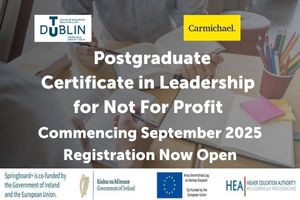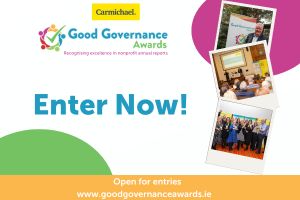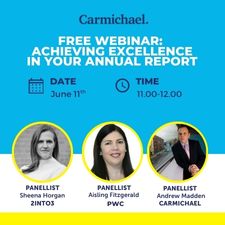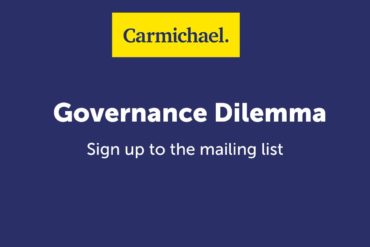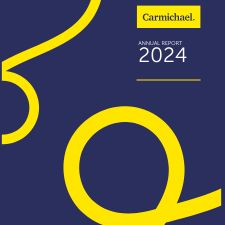If you would like to join the mailing list, sign up here.
Read the latest May 2025 dilemma here.
For an example of a previous Governance Dilemma, see below:
Governance Dilemma
Mark has just returned from a long holiday during which he deliberately ‘dropped out of contact’ with his work life, which included his board role on a not-for-profit company which is also a registered charity. The board meets every second month and he missed a meeting but wasn’t overly concerned as he had spoken with the chairperson before arranging the holiday and received approval for an absence. Last night he received the notice for the next board meeting and was surprised to see that apart from himself and the chairperson all the other board member names were new. The minutes are short and simply record that the board met and received reports about the company’s performance. There is no record of anyone resigning or of any major change. Mark rang the chairperson and asked what had happened. Apparently, there was a big disagreement at the last board meeting, so the chairperson asked the other directors to leave and replaced them with some ‘trusted friends’. Mark had got on well with his board colleagues and, after his talk with the chairperson, – which left him as ill-informed as he was beforehand – Mark called his closest friend from among his former colleagues. The friend said that he and the other directors had disagreed with a proposal but that they couldn’t discuss it as they were bound by confidentiality. The friend confirmed that the chairperson had asked him to leave and suggested that it would have been untenable to stay after the chairperson requested his resignation; however, he did say that there was nothing for Mark to be concerned about and that it was just a difference of opinion about where the company should be headed. The papers for the coming meeting are fairly bland and have a lot of operational and background papers that will be helpful for the four new directors. There is no mention of any new initiative. There is nothing that gives Mark a clue about what might have happened or what to do next. What should he do?
Clodagh O’Reilly’s response:
I should imagine it was a huge shock for Mark to return from holidays and discover there was an almost entirely new group of directors around the board table!
It is clear that the minutes of the previous board meeting are insufficient and do not contain the key details of discussions and decisions made at the previous board meeting. The minutes of meetings should reflect the discussion and record decisions. Mark, as a director, is entitled, and furthermore, required to know the details of the discussions and what led to the resignation/termination of the directors at the previous meeting. This should be his first step, going back to the chair to request a full disclosure of the new proposal and the discussion that followed at the meeting. Without this information, his capacity to make informed decisions going forward will be hampered. Mark will need to evaluate if the contentious new project deviates from the mission of the organisation. It may push the charity to operate beyond its approved objectives as per the constitution, which would jeopardize its charitable status and indeed, the limited liability of the directors. If Mark is not provided with this information to his satisfaction, which allows him to make a full risk assessment of the new proposal, it is difficult to see how his position on the board could remain tenable. The ‘bland’ papers for the upcoming board meeting will further heighten his concerns as they seemingly, perhaps intentionally, are seeking to sanitize the previous disagreements. If his concerns are not alleviated and the information requested is not satisfactorily provided, he should consider taking independent legal advice and/or making a report to the charity regulator highlighting the governance breaches.
Mark should revert to the constitution and board procedures to review the process for the removal and approval of directors. It seems unlikely this process has been appropriately followed, either for the dismissal of the previous directors, or the appointment of the new directors. Was there a quorum present to elect the new directors, if all other directors had resigned? Furthermore, the fact that the new directors are ‘trusted friends’ of the chair, suggests there may be a conflict of interest and a lack of independence.
Ultimately, Mark, as a charity trustee, on behalf of all the stakeholders, particularly the beneficiaries, has an obligation to ensure good governance practices are in place and must take the necessary steps.
Patrick Downes’ Response:
Mark has every reason to be concerned. What has happened here is highly unusual and raises serious governance red flags. A Chair does not have the authority to simply dismiss board members and replace them with “trusted friends” without following due process. This situation demands immediate scrutiny.
Mark’s first step should be to establish exactly what happened. The sudden replacement of an entire board, with no formal resignations or recorded discussions, suggests something significant occurred. While Mark’s former colleagues may be bound by confidentiality, the fact that they all resigned after a disagreement indicates the issue was exceptionally serious. Mark needs to probe—was this a strategic dispute, a financial matter, or a governance breach? Understanding the nature of the disagreement will help him decide his next steps.
He should then look at the company’s constitution and governance framework or the Trustees Code of Practice if there is one. The rules on board appointments and removals should be clearly outlined in the governing document. The unilateral removal of so many directors would be rare and I would query if the Charities Regulator had been advised or if there were any implications in that regard. The Charities Governance Code, has clear requirements for transparency and board decision-making. As a sitting board member, Mark has the right to review these documents and should do so without delay and indeed may wish to seek independent legal advice.
Governance best practice requires that all major decisions be documented. Given there is no record of the exit of the Trustee’s, that is a major red flag. Mark should also consider whether there are financial or operational implications. The fact that the upcoming board papers contain no mention of new initiatives suggests the Chair may be keeping information from the remaining Trustee’s. A detailed review of financial statements and audit reports could reveal if there were concerns that led to the Trustee’s departure.
At this point, Mark must decide whether to stay and challenge the Chair’s actions or step away. If he remains, he should demand an emergency board meeting to clarify governance processes. If he resigns, he must document his reasons to protect himself from future liability. He might also want to consider ensuring that the company’s Directors and Officers (D&O) insurance policy is up to date. Either way, he must act decisively and quickly to ensure proper governance is restored and any potential reputational risk is mitigated.
Mark should take a firm but careful approach:
• Request an emergency board meeting where the chairperson formally explains the changes.
• Demand full disclosure of board minutes and governance documentation.
• Engage with the Charities Regulator (if applicable) or legal counsel if irregularities are found.
Aileen Hickey’s Response:
Mark is correct to be concerned as there is a requirement for charity trustees to adhere to the highest standards of conduct in the performance of their duties as outlined by the Charity Regulator. In this instance, the Chair does not appear to be acting in the best interests of the charity, particularly, as regards to the high standards that must be met and the duty to fairness and independence of charity trustees.
There is a constitutional provision in the governing document for most not for profit organisations in relation to the removal of Board Directors whereby, a director can be removed before the expiration of their term of office but this is usually done where extended notice has been given as required by the Companies Act 2014. This does not appear to have been the case here as the removal of the Directors appears to have been very sudden and without notice.
There is also usually provision for the sudden removal of a director but only in certain specified circumstances such as being adjudged bankrupt or becoming of unsound mind or otherwise incapable of discharging the duties of a director. Other circumstances might include being convicted of an indictable offence or is continuously absent from Board meetings. None of these would seem to apply in these circumstances.
Neither do the minutes of the meeting that Mark was sent, appear record the removal of the Directors and they should have done so as while there was no requirement to record the full discussion, there is a requirement to record decisions and the outcome of any votes taken on issues and a summary of the discussion and action taken. Mark as a trustee and director of the charity should have been provided with the minutes of the meeting and with a recorded change/removal of directors.
It would appear that the new board members were co-opted as there is no mention of an election or an AGM. The co-opted directors should have been appointed by the board rather than just the chairperson and it is unclear if this is the case. There is usually a provision in a not for profit constitution relating to the number of co-opted directors and this is usually a restricted number and a smaller number than the elected directors. In this case, only Mark and the Chair had remained as directors, therefore, the co-opted directors appear to be many more than elected directors.
There appears to be little governance on this board and the Chair seems to have acted unilaterally and not in line with any best practice Board procedures. Mark needs to approach the Chair and discuss what may be a possible breach in the standards outlined by the Board in the Code of Conduct and any perceived or actual breach in the provisions of the charity’s governing document.
If this does not allay his concerns he may raise the concern with the Charities Regulator as a possible breach in duty by the Chair.
- Governance & Risk
- Finance
- Training, Client Services and Strategy
Candidates should also have a very good understanding of and interest in the nonprofit sector.
Time Commitment
There are currently 12 members on the Board of Carmichael with six due to retire at the upcoming June AGM. As the Board is currently at its maximum number of members (12), the successful candidate for this role will be invited to join a Board committee from March 2024 with the intention of filling a Board vacancy which will be created on the Board in June.
The board meets around 7 times a year. Board meetings are normally held online with at least two meetings per year held in-person in Carmichael House, North Brunswick Street, Dublin 7 from 5pm-7pm on a Tuesday.
The new board member would also be required to be a member of one of the Board’s subcommittees. The estimated time commitment of the board member is 8-10 hours per month.
The initial term of office for Carmichael Board members is 3 years, with an opportunity to serve a second 3-year term subject to Board approval.
To apply
Apply as outlined in the role descriptions below before January 14th 2024.
- Board Member (Trustee & Director) with Governance and Risk Experience
- Board Member (Trustee & Director) with Finance Experience
- Board Member (Trustee & Director) with Strategy, Training and Client Services Experience
For more information on these board vacancies or Carmichael, please contact the Services Manager, Róisín McGuigan, at roisin@carmichaelireland.ie.
Charity Trustees’ Week 2022 will run from November 14th to November 18th with over 20 exciting events for Trustees.
- How Organisational Behaviour Affects the Performance & Effectiveness of a Charity – Monday 14th at 8.30am with TU Dublin (Free, in person)
- Governing with Purpose: A conversation with Brian Cavanagh – Tuesday 15th at 8.30am (Free, in person)
- Cutting Edge Board Meetings – Tuesday 15th at 2.30pm with The Wheel (Free, online)
- Boards, Chairs and CEOs: Roles, Relationships & Boundaries – Tuesday 15th at 6.30pm (Paid, online)
- Diversity & Inclusion in your Non-profit Organisation – Wednesday 16th at 10.00am (Paid, online)
- The Good Governance Awards Ceremony – Thursday 17th at 6pm (Free, in person)
For the full schedule and booking links see: https://bit.ly/3TmviAQ
Charity Trustees’ Week is hosted in partnership by the Charities Regulator, Boardmatch Ireland, Carmichael, Charities Institute Ireland, Dóchas, Pobal, The Wheel, and Volunteer Ireland.
Mon, 14 November 2022, 08:30am – 10:00am
Carmichael 4 Brunswick Street North D07 RHA8 Dublin 7
TU Dublin & Carmichael invites you to a discussion on How Organisational Behaviour Affects the Performance & Effectiveness of a Charity.
The impact of a charity is visible through the effectiveness of its support to the service users and their experience with the charity. Impactful charities have demonstrated their agility to respond to the needs of service users, while still effectively following good governance as per the Charities Governance Code.
In this seminar we will discuss how this agility is achieved through organisational behaviour and how this can improve organisational decision-making.
From here we will introduce the new Charity Trustee Programme (NFQ level 6). This predominantly online 1 year part-time programme has been designed in partnership by Carmichael and TU Dublin with the aim of addressing the requirement for a charity trustee to have a deep understanding of their roles and obligations.
The event will begin with teas and coffees at 8.30am and the discussion will begin at 9am.
The event is free but prior registration is required.
This event is part of #TrusteesWeekIrl. For a full schedule of events see
Charity Trustees Week 2022 (charitiesregulator.ie)
Tue, 15 November 2022, 08:30am – 10:00am
Carmichael 4 Brunswick Street North D07 RHA8 Dublin 7
To mark the launch of his book “Governing with Purpose: How to lead a brilliant board – a guide for charity trustees”, Brian Cavanagh will be in conversation with Carmichael CEO, Diarmaid Ó Corrbuí, about some of the book’s key insights and guidance for charity trustees. This will be followed by a Q&A session with the audience. Refreshments will be provided.
The event is free but prior registration is required.
This event is part of #TrusteesWeekIrl. For a full schedule of events see
Charity Trustees Week 2022 (charitiesregulator.ie)
The Good Governance Clinics have been designed to provide volunteer trustees with a relaxed and supportive space where they can freely and easily, over tea and coffee, unburden themselves of the governance related concerns and queries that have been addling and at times bewildering them.
Whilst on the other hand it is about empowering trustees to showcase and identify the good governance practices that they themselves have in place and are committed to exercising. As such, the September clinics will highlight to groups how to showcase the impact of their activities and existing good governance practices through the Good Governance Award, now in its seventh year. The Good Governance Awards (GGA) is a national initiative led by Carmichael that promotes, recognises and encourages adherence to good governance practice by nonprofits in Ireland.
The clinics will be delivered by Diarmaid Ó Corrbuí, CEO of Carmichael and be an hour and a half in duration.
There are four clinics across Munster, sign up below:
Kerry: Good Governance Clinic Tickets, Wed 7 Sep 2022 at 11:30 | Eventbrite
Cork: Good Governance Clinic Tickets, Wed 7 Sep 2022 at 15:30 | Eventbrite
Clare: Good Governance Clinic Tickets, Thu 8 Sep 2022 at 11:00 | Eventbrite
Carmichael is delighted to announce a partnership with Ecclesiastical Insurance to provide a series of free training webinars on the theme of enterprise-wide risk management for nonprofits. Sign up here: https://forms.office.com/r/sNvTmKQAnX
Risk Identification & Horizon Scanning, Sept 7 12pm-1pm
Identifying and managing the possible risks that a charity may face is a key part of effective governance. This webinar will examine multiple risk identification tools and techniques including; Bowtie, SWOT, PESTLE and Horizon Scanning.
Risk Analysis, Prioritisation and Mitigation, Sept 30 12pm-1pm
This webinar will apply a tried and tested Enterprise Risk Management process to; analysis the potential root causes and consequences, assess and prioritise and understand appropriate risk mitigation strategies in relation to the ever, evolving charity riskscape.
Risk Culture Oct 19, 12pm-1pm
Having a strong risk culture will support charities in managing risks effectively. This webinar will explore what can influence and determine a strong risk culture and the benefits and challenges a charity may face during implementation and embedding and how to overcome these.
Reputational Risk, Nov 2 12pm-1pm
Protecting and improving a charities reputation is of great importance, this webinar will set out to provide an understanding of Reputational Risk versus Reputational Risk Management and focus on building resilience through risk management, business continuity planning and crisis response plans.
Introduction to Business Continuity Management, Nov 30 12pm-1pm
This webinar will explore the importance and benefits of Business Continuity Management, roles and responsibilities and introduce the various stages of an effective Business Continuity Management Programme.
Business Continuity Management – Undertaking A Business Impact Analysis, Jan 18 12pm-1pm
The webinar will primarily set out to demonstrate how to successfully undertake a Business Impact Analysis in order to understand a charities Critical Services to respond effectively in the event of a material disruption.
Building A Resilient Business Continuity Management Plan, Feb 1 12pm-1pm
This webinar will help charities to prepare for a rapid response and coordinated recovery in the face of a material disruption, examining a template and contents of a tried and tested effective Business Continuity Management Plan.
Partnerships, Mergers & Due Diligence, Feb 22 12pm-1pm
Collaborating with other charities and organisations can bring material benefits to both parties and importantly to beneficiaries. This webinar will include exploration of tool, techniques and top tips to undertake due diligence activity effectively.
This programme is being delivered in partnership with Ecclesiastical.
Carmichael is delivering free workshops for Board Members, Directors, Trustees, CEOs, Managers and anyone else involved in the preparation of Annual Reports for a nonprofit. This includes Companies Limited by Guarantee, Registered Charities, Unincorporated bodies, Social Enterprises and Sports Organisations. Each workshop covers the basics of what is required in an annual report and then focuses on how to use the annual report as a way of showing the public, your members and funders how good your organisation is. These workshops are aimed at smaller charities (annual income of less than €250,000) and, particularly, at charities with income of less than €50,000. Workshops will be delivered over Zoom. Email roisin@carmichaelireland.ie for more information. Sign up for a workshop here.
This programme is kindly sponsored by the Community Foundation for Ireland and Pobal.
